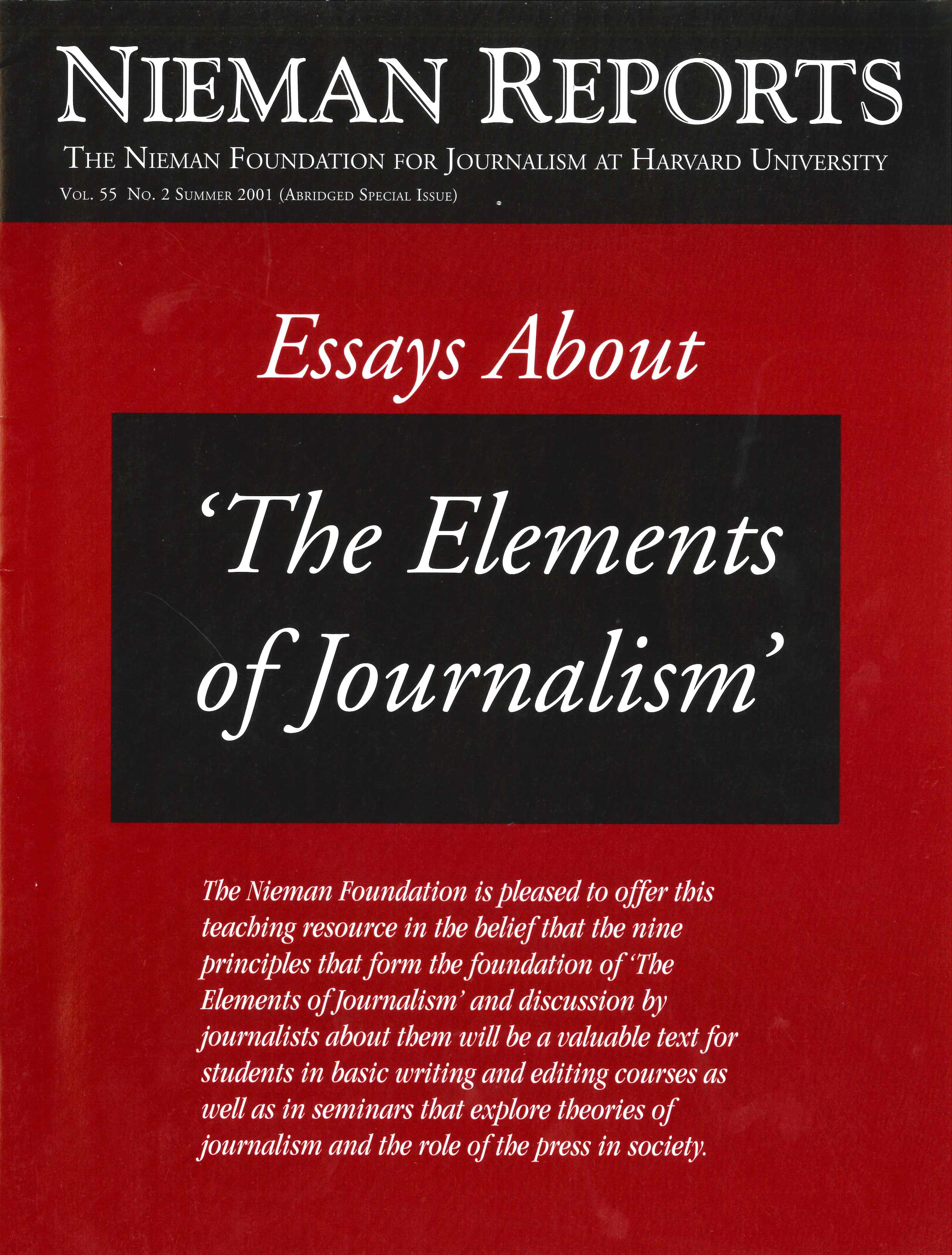When journalism students arrive at my door to ask what they should know about being reporters, I give them the same spiel again and again. I’m sure some consider it a rant.
“Being a reporter is a privilege,” I begin. “For that privilege, you have to give up some of your rights as a citizen. You’re no longer a Democrat or a Republican, no longer a public proponent of any social issue, a protester in demonstrations, a signer of petitions, an advocate of good causes, a fundraiser for charities, or an advocate on behalf of any constituency. Whether objectivity is achievable in the absolute sense, a reporter has, above all else, to be fair. Prepare to be unpopular. Finally, get ready to be fired for the wrong reason or quit on principle.”
In 1997, my rant rang in my ears. For two years I’d fought with management about the direction our newscasts were taking. My concerns: the progressive dumbing down of content and the commercial corruption of the news because of promised “stories” to advertisers. Finally, with the hiring of trash talk show host Jerry Springer, I quit my anchor job at WMAQ-TV in Chicago.
Now, in reading what Bill Kovach and Tom Rosenstiel say about journalists and their responsibility to conscience, I agree with much of what they say. But I get uncomfortable when they write, “Journalists have an obligation to personal conscience. Every journalist—from the newsroom to the boardroom—must have a personal sense of ethics and responsibility—a moral compass.” I quibble over the use of words like “conscience” and “moral compass.”
I tell people all the time that news is my religion. But what I fear is that these words open the door for a kind of moralizing that is antithetical to good journalism. I didn’t quit my job because I thought Jerry Springer and his show were morally offensive. My decision had much more to do with his hiring being a ratings stunt, that he brought no credibility to our newscast, and that I felt his presence would destroy the trust we’d established with our viewers.
For me, resigning was an ethical decision, not a moral one. This might seem a distinction with no difference, yet words are powerful instruments. Kovach and Rosenstiel use “ethical” and “moral” interchangeably, as do dictionaries. But while definitions overlap, I find important distinctions in the different tones. “Conscience” and “morality” seem to hold a bit too much righteousness and rectitude for what journalists really do when they try to do the right thing. “Ethical” suggests a search for guidance for conduct and decision-making, a process rather than a doctrine.
The authors and I agree that journalists need a support system to help them make good ethical decisions. A few years ago, a young woman who was the medical reporter at a small television station called me. Her boss asked her to prepare reports that a local hospital would vet before they were broadcast. What should she do? I could tell she knew the answer before she called, but she needed me to be her support system that day.
I’d been involved in a similar situation at WMAQ a few years earlier. Management was “selling” the news through making “value-added” deals with advertisers. This meant that in addition to buying commercial time on a given newscast, advertisers were promised to be part of actual news stories. (If a hospital offered free thyroid tests, we’d broadcast a medical “news story.”) The problem: The viewer was left unaware that such “news stories” were being bought. When I refused to read copy that prompted a “value added” story, I was suspended.
My decision then was not based on conscience or morality but on my belief in the need to uphold a professional context for our work. Ours is, after all, a public trust in which we are required to seek out and report the truth, not hide it from those we serve. Our privilege carries risks, and this young reporter was learning this quickly. And she was doing what we all do, seeking out someone to talk to for guidance.
The Chicago Headline Club of the Society of Professional Journalists is trying to break some ground on this. With ethicists at Loyola University, it has set up an advice line where journalists can confidentially ask for help on thorny problems they face in their newsrooms. There are kinks to be worked out, but it’s a heroic effort by very dedicated journalists. They understand that journalists don’t just report on ethical dilemmas that others confront—though we do plenty of that, as well—but also travel through territory of ethical conflicts. What journalists need are safe harbors like this one to turn to when the pressure becomes intense.
Carol Marin is a CBS News correspondent contributing pieces to “60 Minutes” and “60 Minutes II.”


